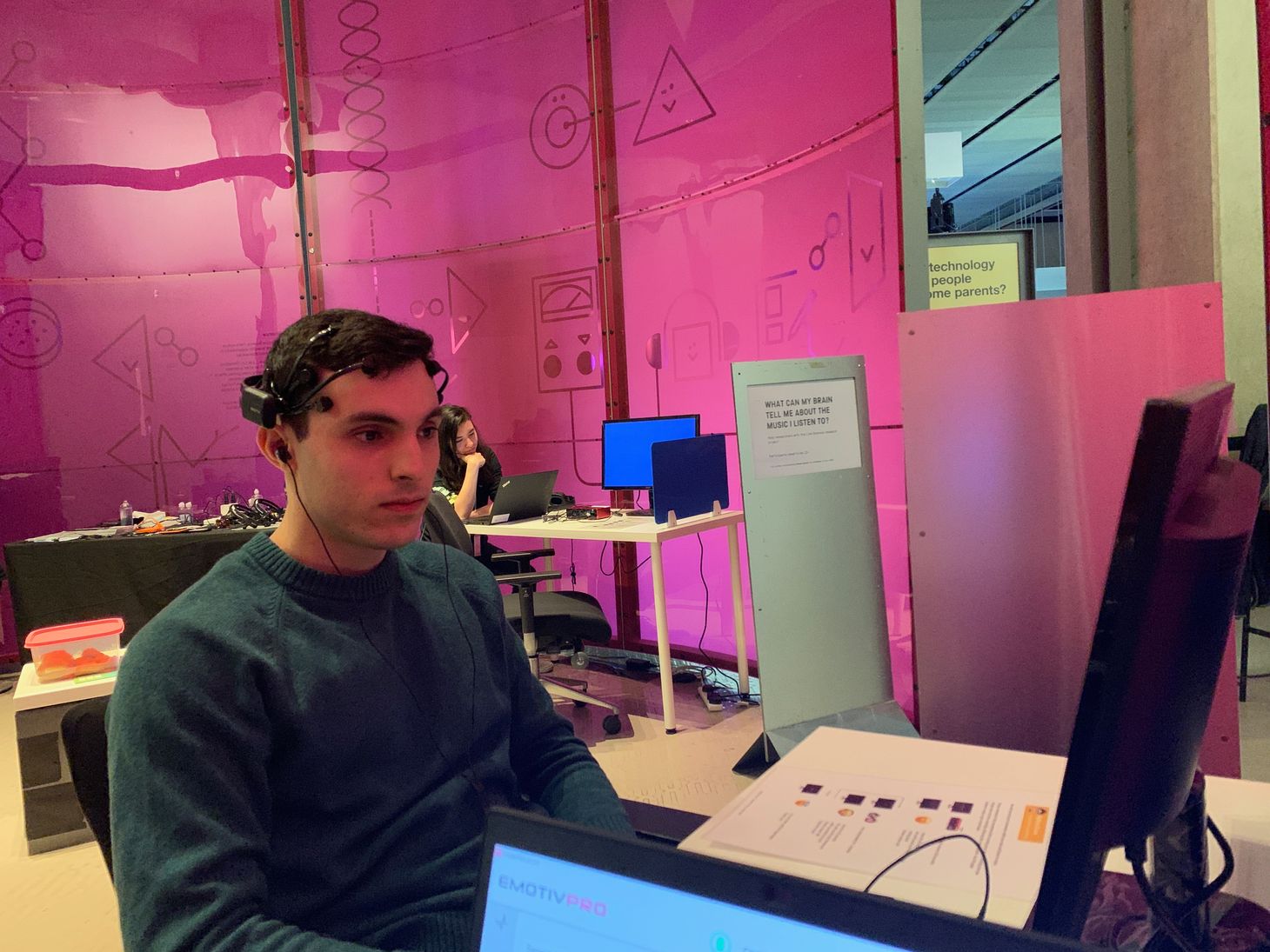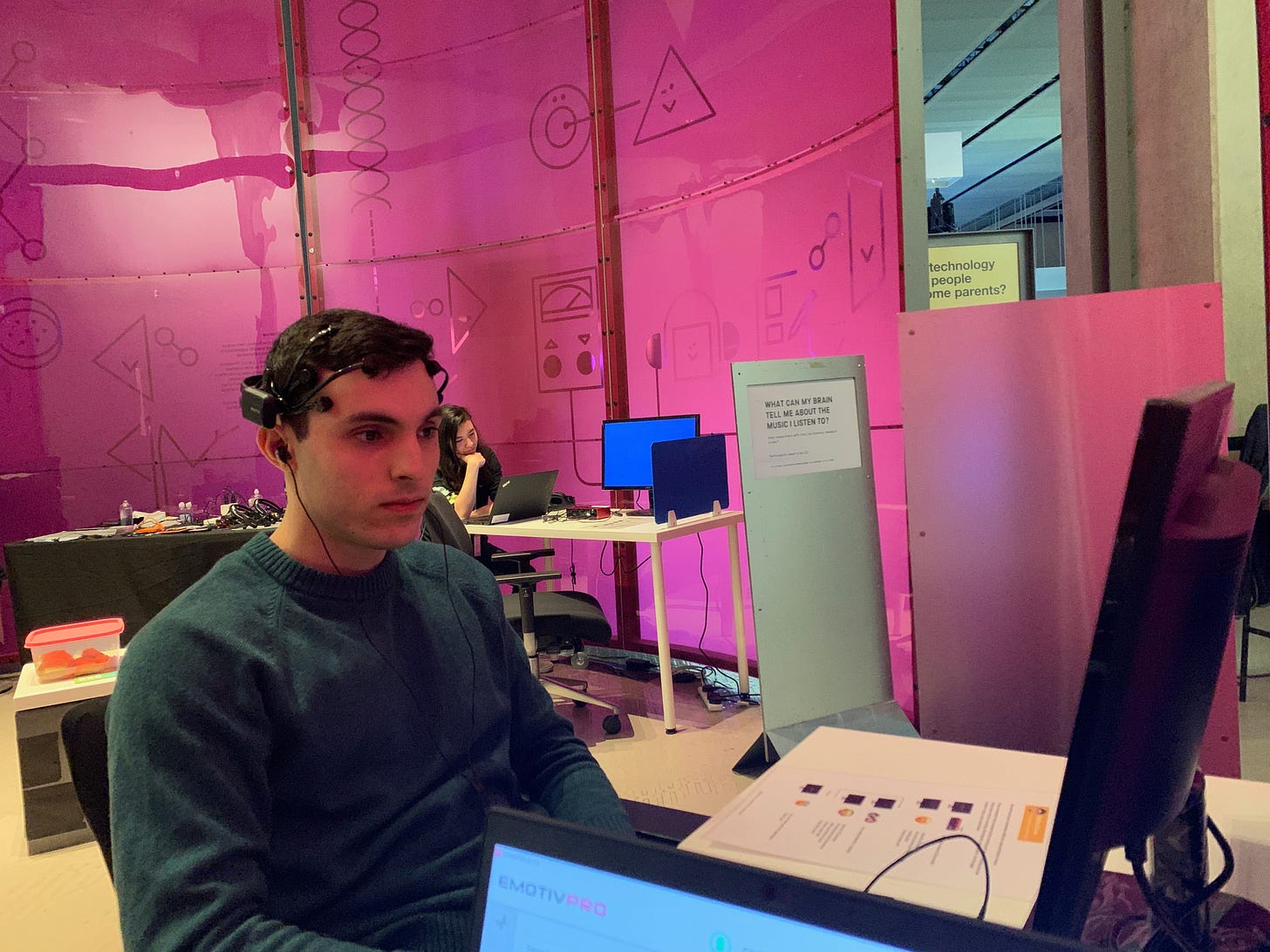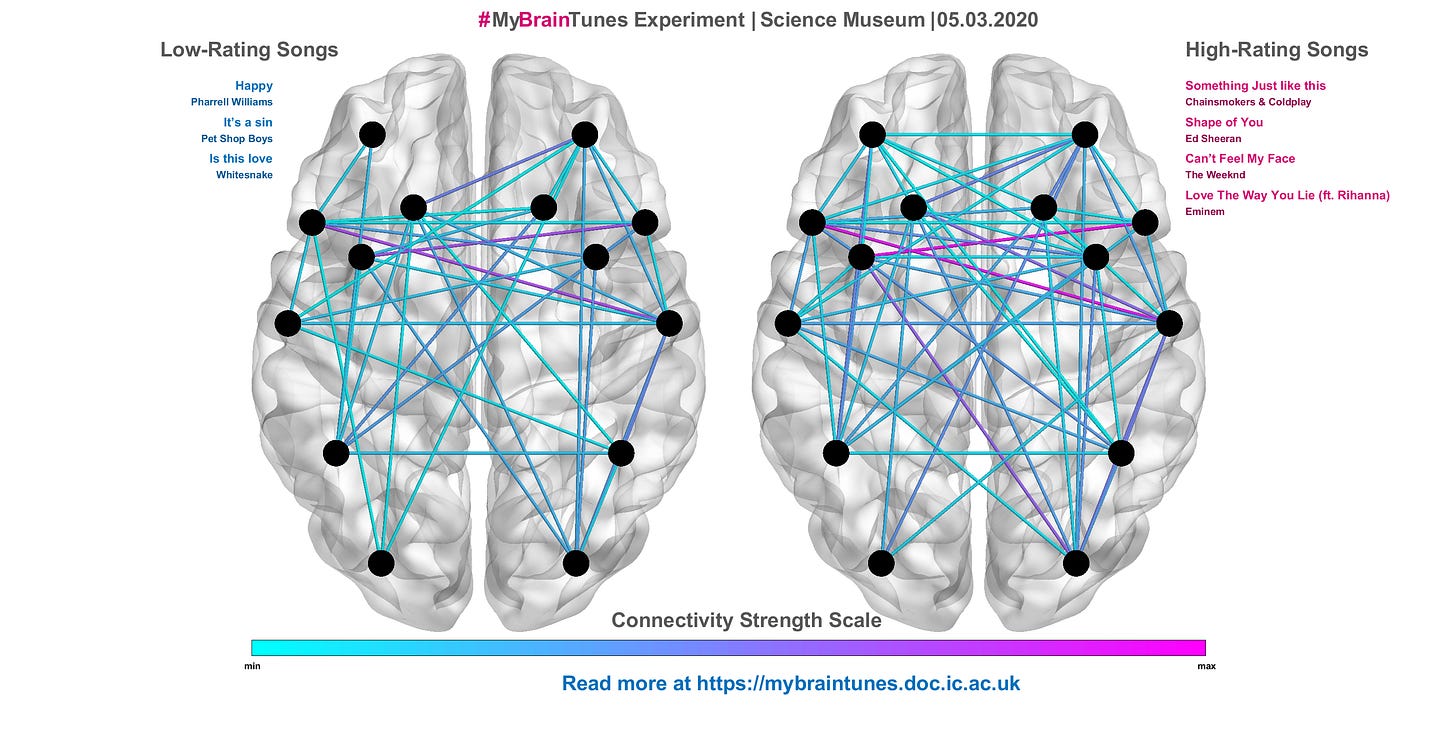Decoding musical taste
No more likes or skips. Your brainwaves would tell Spotify everything it needs to know!

In doing research for an upcoming article on music, I came across a fascinating public experiment called MyBrainTunes. The question they’re exploring is whether we can use wearable brain monitoring technologies (EEG) to predict our favorite music?
This experiment is unique because they are collecting their data at London’s Science Museum, using visitors as participants in the study. The team hopes to process upwards of 2,000 participants, which would be unprecedented in the field.
I happened to have a work trip scheduled to London, so I stopped by.

Here’s how it works:
- First, you listen to a set of 30 songs from the UK Top Charts and rate each one
- Then, you listen to the songs again, but this time while an EEG is measuring your brainwaves
- The team processes your data and emails you a brain-connectivity graph of your musical taste.

In the image above, you can see the differences in how my brain responds to songs that I don’t like (left) and songs that I like (right). What changes isn’t necessarily the activity in specific parts of the brain, but rather the connectivity between brain regions (the degree to which they are in sync).
Using the connectivity profiles of thousands of people, the research team aims to build computational models that will help us explore and decode people’s music-listening brain states. If the model is accurate, this would mean that the algorithm might know whether you like a particular song just by listening to your brainwaves.
Think about what this would mean - if you were to be wearing a consumer EEG set while listening to music on Spotify, then their recommendation algorithm could tune itself without you ever pressing a button. No more likes or skips. Your brainwaves would tell Spotify everything it needs to know!
Friday Brainstorm Newsletter
For more, join 300+ curious people subscribed to the Friday Brainstorm newsletter. It’s one email a month with the most interesting ideas I've found related to science and health.